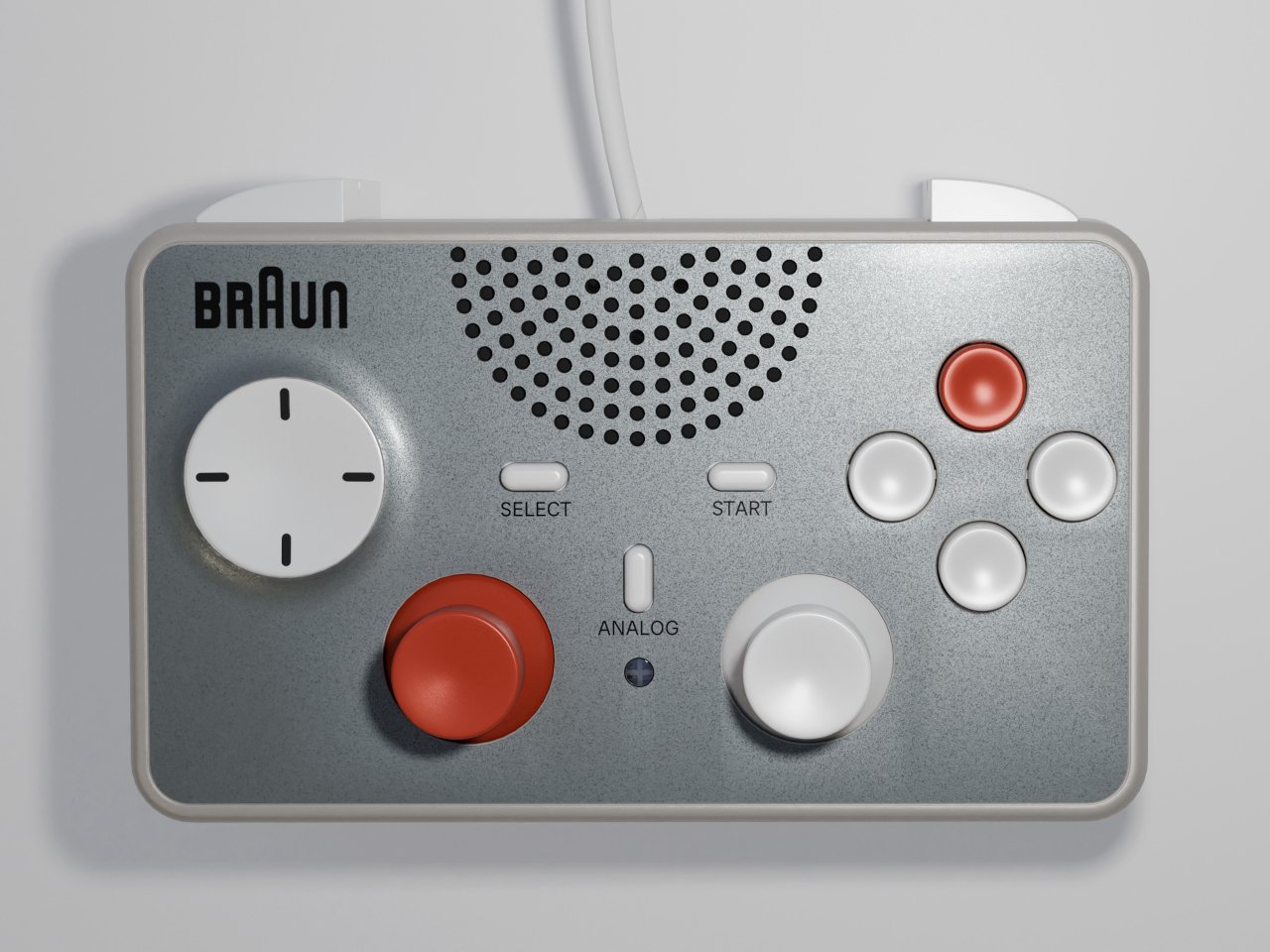Gaming hardware has become increasingly aggressive in its visual language, with controllers featuring sharp angles, neon accents, and complex surface textures that seem designed to intimidate rather than invite. This aesthetic arms race has created a landscape where gaming devices often feel more like weapons than tools for play, alienating users who prefer quieter, more thoughtful design approaches.
Mark Moes’ Braun-inspired gaming controller concept offers a refreshing alternative by channeling the clarity and restraint of Dieter Rams’ legendary industrial design philosophy. This concept controller strips away the visual noise that dominates modern gaming hardware, instead embracing the “less but better” approach that made Braun products timeless icons of functional beauty.
Designer: Mark Moes
The visual language immediately feels different from typical gaming controllers. The soft rectangular form features gentle curves and a balanced, symmetrical silhouette that prioritizes comfort over aggression. The matte finish and understated color palette of off-white, gray, and black create a sense of calm sophistication, while subtle orange accents on key buttons provide functional highlights without visual chaos.
The control layout follows a clear, grid-like organization that echoes the logical arrangements found in classic Braun audio equipment. Analog sticks and the D-pad are rendered as simple, circular forms with minimal surface texturing. Face buttons feature clean, sans-serif labeling that prioritizes legibility over style, while the orange accent draws attention to the main action button in true Braun fashion.
Of course, the ergonomic considerations feel just as important as the aesthetic choices. The controller’s proportions appear designed to fit naturally in your hands, with rounded edges and a slightly convex back that supports long gaming sessions. The focus on comfort and grip suggests a device that disappears during use, letting you concentrate on the game rather than fighting with the controller.
The concept hints at modern features like voice control integration, which would align perfectly with Braun’s philosophy of adding functionality without visual complexity. This kind of invisible innovation represents the best of both worlds, bringing contemporary capabilities to a timeless design approach that never feels outdated or overwhelming.
That said, the real appeal lies in how this concept challenges our assumptions about what gaming hardware should look like. Instead of accepting that controllers must be visually aggressive or feature-heavy, Moes demonstrates how restraint and clarity can create something that feels both sophisticated and approachable for users of all ages and experience levels.
The timeless quality of the design suggests a controller that would age gracefully, avoiding the visual trends that make today’s gaming hardware look dated within a few years. You’ll notice how every design decision serves the user rather than the marketing department, creating something that feels genuinely useful rather than merely impressive.
This Braun-inspired controller concept reminds us that great design can make even the most familiar objects feel new again. You can see how this minimalist approach might influence other gaming hardware, suggesting possibilities for technology that enhances rather than overwhelms our daily experiences with thoughtful, human-centered design.
The post Braun-Inspired Gaming Controller Concept Brings Minimalism to Modern Play first appeared on Yanko Design.

